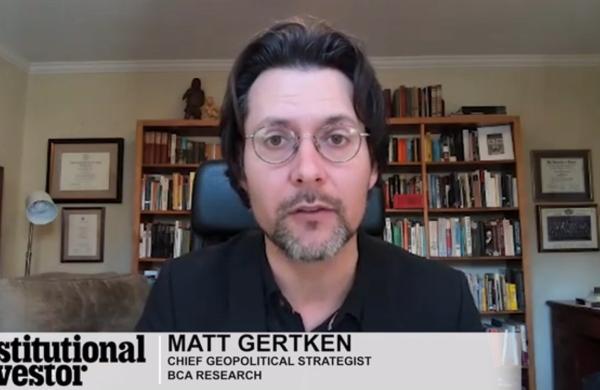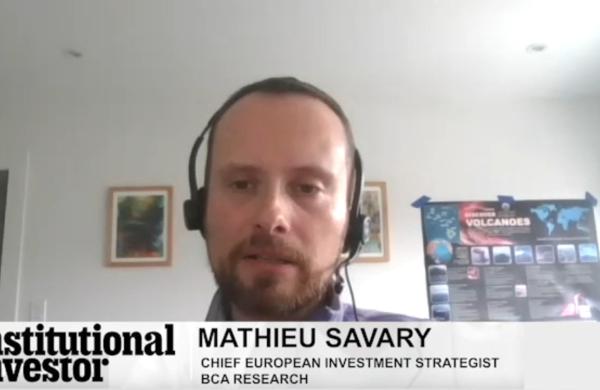For years top global custody banks have been expecting a wave of outsourcing business from institutional customers. They've added services. For example, J.P. Morgan Chase & Co. in 2002 acquired transaction cost analysis specialist Plexus Group. And they've added technologies. Bank of New York Co. last year bought a stake in data warehouse systems company Netik. The aim was to offer more than plain-vanilla custodianship.
Bit by bit, buy-side firms have been showing signs of coming around. In December, for instance, AXA Investment Managers awarded an extensive administration and operations mandate to State Street Corp.
But even as custodians campaign for such big prizes, they face unanticipated challenges and threats -- traceable at least in part to hedge funds.
To satisfy their growing number of institutional investors, hedge funds will have to meet increasingly stringent requirements for "operational and infrastructure excellence," according to a study that BoNY commissioned last year from Stamford, Connecticut, consulting firm Casey, Quirk & Acito. To do so, they need state-of-the-art systems for trading, portfolio accounting, asset valuation and risk management, as well as provisions for disaster recovery.
How readily hedge funds will invest in these capabilities remains to be seen; many are content with the operational support they get from prime brokerages.
The top custodians, however, have all the necessary capabilities, which they routinely make available to their established buy-side clientele. What's more, BoNY, Citigroup, HSBC Holdings, J.P. Morgan and State Street have all acquired hedge fund administration businesses in recent years as a means of entrée into the alternative-investment arena.
But can these custodians expect to extend their outsourcing reach as the hedge fund market matures?
Not necessarily, and certainly not over the long term, says Imran Gulamhuseinwala, a London-based Mercer Securities consultant and author of an October 2004 report, "Securities Servicing: Profiting from Outsourcing and Operational Risk," published jointly by Mercer Securities and Lazard. Gulamhuseinwala sees custodians encountering more and more competition from both prime brokerages and another technology-savvy group: correspondent clearing firms.
For the moment, those rivals aren't going after the basic back-office functions of custody and safekeeping. "Clearers and prime brokers have very robust growth prospects in their existing businesses," says the consultant. However, as these entities respond to their core clients' growing demands for data and operational sophistication, they will likely start branching out, as the custodians have already done, and will compete more directly with one another.
Some think a new breed of service provider straddling these historically distinct marketplaces might emerge. One candidate: Penson Worldwide, a Dallas-based holding company that through a number of subsidiaries offers a laundry list of front-, middle- and back-office support services, ranging from analytical market data to trade execution to custody and clearing and settlement.
"It is absolutely accurate to say that correspondent clearers, prime brokers and custodians do fundamentally the same things for different types of clients," says Chris Gregory, managing director of Penson's U.K. clearing unit, Penson Financial Services. "To a large extent, the differences are breaking down at the client level -- clients are making demands for very specialized services."
Take, for example, Penson's outsourced service for KBC Peel Hunt, a London brokerage owned by Belgium's KBC Group. Under a November agreement, Penson serves as a "nominee under mandate" for all U.K. equities, responsible for the registration and transfer of securities, including the delivery of physical certificates to the Crest settlements system.
Peel Hunt CEO Timothy Cockroft describes the outsourcing deal as a "strategic move" and praises Penson for its "flexible approach, industry experience and leading-edge technology solutions that are unparalleled in the market."
A clearer like Penson begins with a foundation of transaction processing services for agency and online brokerages that are executing for clients rather than holding their own positions. Although Penson is clearly branching out -- last July it acquired Irvine, Californiabased trading technology company Nexa Technologies, and in January it added Great Falls, Virginia, market database firm Tick Data -- Gregory says there are limits to how many lines a securities servicer will ultimately cross. For instance, global custodians alone have the heft to meet the basic custody needs of institutional pension funds, and only prime brokerages have the research and blue-chip investment banking products that a long-short hedge fund requires.
Penson is not the only company bolstering its credentials as a more diversified outsourcing provider. In November, Roseland, New Jerseybased Automatic Data Processing's brokerage services unit paid an undisclosed sum to acquire the U.S. clearing and broker-dealer services businesses of Bank of America Corp., now dubbed ADP Clearing & Outsourcing Services.
In adding the BofA business, ADP has rounded out what it terms a three-tier strategy: its traditional back-office brokerage operation; correspondent clearing services, in which customers rely on ADP's capital for financing; and operations outsourcing. The latter "lets [self-clearing] customers buy technology services and processing staff from us without having to use our balance sheet to finance their positions," explains Clarke Gray, chief administrative officer of the ADP unit.
Are the traditional custodian-outsourcers concerned about such encroachment?
Neil Henderson, senior vice president of securities processing and fund services at J.P. Morgan Investor Services, acknowledges that competition is on the rise. "The traditional focus of global custodians has been long-only pension funds," he explains. "But these have recently expanded into more aggressive investment strategies -- including hedge funds."
To rise to the occasion, Henderson points out, "custodians have spent a good deal of money and time developing a range of services tailored to the end investor," such as client reporting and compliance. A case in point is J.P. Morgan's July 2004 acquisition of hedge fund servicer Tranaut Fund Administration, which has operations in Boston, Dublin and Hamilton, Bermuda. The bank can now give clients a more comprehensive view of their investment portfolios by linking its Views reporting platform with Tranaut's systems, says Henderson.
Citigroup's Global Transaction Services unit is looking to attract hedge funds by packaging recordkeeping and other back-office capabilities with Citi's prime brokerage offerings, such as trade execution. "We can develop some sophisticated financial accounting tools that will enable funds of hedge funds to obtain a comprehensive view of all of their investments across different portfolios," says GTS managing director Tom Abraham.
Wade McDonald, senior vice president and head of client services in the U.K. for State Street, says the buy side is taking a more selective, "component-based" approach to outsourcing, which may lead gradually to full-scale outsourcing.
The U.K.'s Gartmore Investment Management went that route over the past few years, ultimately entering into a lift-out arrangement with HSBC Securities Services, which since January 2004 has run the entire back office in London. Says Barry Marshall, chief operating officer of Gartmore's investment division: "I don't think it is wise to outsource everything at once. You really need to know what you are doing and trying to achieve by outsourcing."
Such a component-based approach is made possible by business process management technology, a tool for coordinating the migration of several disparate functions toward a desired end state, says Andrew Muir, London-based head of the financial sector practice at BPM software developer Singularity.
"You can break down the back office into 20 to 30 parts, and many organizations are now looking to outsource those piece by piece," explains Muir. Buy-side firms are unlikely to believe that an organization is brilliant at everything it does, he adds, but they are quite prepared to accept that it can be very good at one or two things.
Muir has labeled the resulting trend "boutique insourcing," in which software or custody providers build outsourcing businesses around specific competencies. "An organization that is very good at trade confirmation, performance measurement and attribution, for example, may see itself having a better chance in the outsourcing market if it focuses on the quality it offers in those areas."
Muir says the field is wide open now that outsourcing has become a "red-hot topic" for financial institutions. "I don't think any fund manager has concluded that at least some form of outsourcing is not a good idea," he says.
Citigroup's Abraham believes the future is bright for broad and narrow outsourcers alike. "There is plenty of opportunity for niche providers," he asserts. "Firms with specialities such as pricing and valuation services will find a space in the [hedge fund] market. And as they get to a certain size, they will be acquired by organizations with large client bases. It is an ongoing process."





